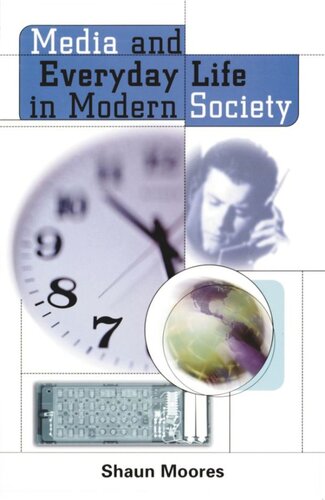

Most ebook files are in PDF format, so you can easily read them using various software such as Foxit Reader or directly on the Google Chrome browser.
Some ebook files are released by publishers in other formats such as .awz, .mobi, .epub, .fb2, etc. You may need to install specific software to read these formats on mobile/PC, such as Calibre.
Please read the tutorial at this link: https://ebookbell.com/faq
We offer FREE conversion to the popular formats you request; however, this may take some time. Therefore, right after payment, please email us, and we will try to provide the service as quickly as possible.
For some exceptional file formats or broken links (if any), please refrain from opening any disputes. Instead, email us first, and we will try to assist within a maximum of 6 hours.
EbookBell Team

4.0
86 reviewsWhat position have television, radio and other electronic media like telephones and computers come to occupy in people's day-to-day lives and social relationships?
How do these communication and information technologies get used and made sense of in local settings such as the household and the urban neighbourhood?
How have they helped to construct new arrangements of time, space and place in a culture with globalising tendencies?
What types of identity, experience and interaction do the electronic media make available to their different audiences or users?
In this accessibly written book, Shaun Moores offers a particular set of answers to these general questions for media and cultural studies, drawing on a range of his investigations and reflections on media and everyday life in modern society. Combining theory with empirical research, he engages with the ideas of key thinkers - such as Giddens, Goffman, Hall and Williams - whilst also referring to detailed ethnographic and historical data. Specific topics discussed by the author include the domestic consumption of broadcasting, the formation of imagined communities and the presentation of self in mediated encounters.